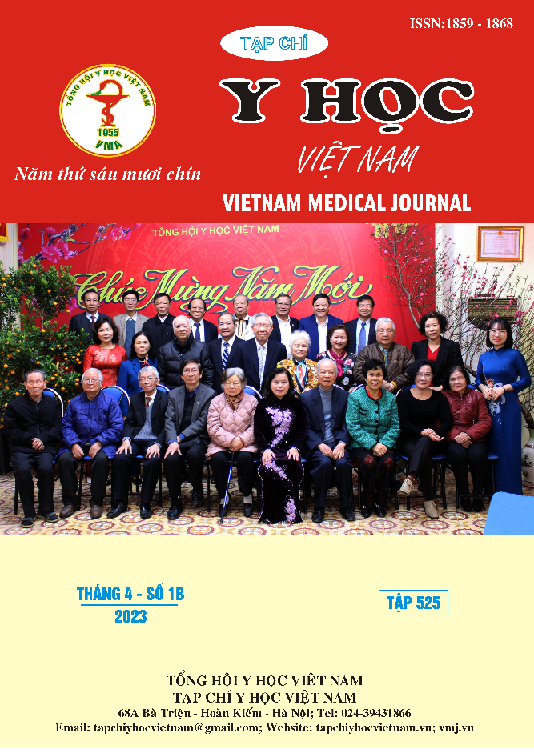THE RELATIONSHIP BETWEEN THE POLYMORPHISM AT rs9298814 OF IFNA17 GENE WITH THE DEVELOPMENT AND SEVERITY OF CHRONIC IMMUNE THROMBOCYTOPENIA
Main Article Content
Abstract
Objectives: (1) To identify genetic variants of IFNA rs9298814 in immune thrombocytopenia (ITP) (2) To investigate the association between IFNA17 rs9298814 gene polymorphism with the severity and chronic ITP in children at Children’s Hospital 1. Research methodology: Descriptive study combined with rescuing for clinical data, genotyping for IFNA17 rs9298814 by Sanger sequencing method. Subjects: 30 healthy control and 205 patients with ITP in Department of Dengue Hemorrhagic Fever and Hematology – Children’s Hospital 1 from 01/2019 to 01/2020. Results and conclusion: For the SNP of IFNA17 rs9298814, the frequencies of the homozygous wild type (TT), the heterozygous (TG) and the homozygous mutant (GG) genotypes were 70,0%, 20,0%, and 10,0% in healthy and 31,7%, 49,3%, and 19,0% in ITP patient. The ratio of allele T/G in healthy and ITP are 48/12 and 231/179, p<0,05. In 205 cases, the chronic ITP is 23,4% (48 cases) and non-chronic ITP is 76,6% (157 cases). There is significant differences between cITP and non-cITP in the frequencies of genotypes (TT,TG and GG), with p<0,05; 15,9%, 60,5% and 23,6% for non-cITP; 83,3%, 12,5% and 4,2% for cITP, respectively. The number of platelet after 3 weeks in cITP patients for genotype (TT và TG+GG) are 18,4± 6,9/uL and 21,5 ±8,4/uL in that order. There was a negative correlation between SNP of IFNA17 T184G and chronic ITP.
Article Details
Keywords
immune thrombocytopenia; rs9298814, IFNA17 SNP
References
2. Bergmann AK, Grace RF, Neufeld EJ. Genetic studies in pediatric ITP: outlook, feasibility, and requirements. Ann Hematol. 2010;89 Suppl 1(Suppl 1):S95-103.
3. Despotovic JM, Polfus LM, Flanagan JM, et al. Genes Influencing the Development and Severity of Chronic ITP Identified through Whole Exome Sequencing. Blood. 2015;126(23):73-73.
4. Elaldi N, Yilmaz M, Bagci B, et al. Relationship between IFNA1, IFNA5, IFNA10, and IFNA17 gene polymorphisms and Crimean-Congo hemorrhagic fever prognosis in a Turkish population range. J Med Virol. 2016;88(7):1159-1167.
5. Li J, Ma S, Shao L, et al. Inflammation-Related Gene Polymorphisms Associated With Primary Immune Thrombocytopenia. Front Immunol. 2017;8:744.
6. Ismail AM, Higazi AM, Nomeir HM, Farag NM. IL-23/Th17 pathway and IL-17A gene polymorphism in Egyptian children with immune thrombocbytopenic purpura. Ital J Pediatr. 2021;47(1):178.
7. Liu S, Xiong YZ, Li T, et al. Interleukin-17A and -17F Gene Polymorphisms in Chinese Population with Chronic Immune Thrombocytopenia. Ann Clin Lab Sci. 2016;46(3):291-297.
8. Saitoh T, Tsukamoto N, Koiso H, et al. Interleukin-17F gene polymorphism in patients with chronic immune thrombocytopenia. Eur J Haematol. 2011;87(3):253-258.


